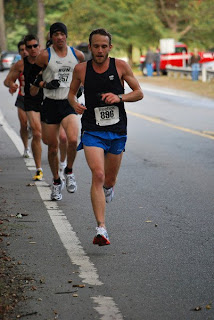Training, Playing, Running
In his thoughts on art and experience, John Dewey distinguishes between three forms of human activity. The distinctions are as follows: labor, play, and work. The differences between these three kinds of activity are qualitative and immanent to experience, and they each are distinguished by the relationship between effort and ends. Bear with me here as I lay out the differences between these three related concepts. Labor is experience that is instrumental. We are in a state of labor when there is no real connection in experience between the activity we undertake and the final product of that activity. We have all participated in this sort of activity: it is effort that takes us nowhere, does not develop or enrich experience. It is effort that is spent without return, or perhaps co-opted by interests that are actually opposed to the one who is putting forth effort. Labor is effort that is organized around certain ends, but the ends are in opposition or at the very least unrelated to t...
